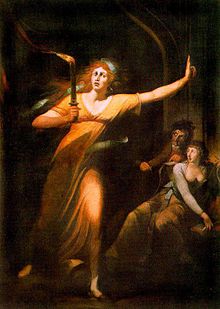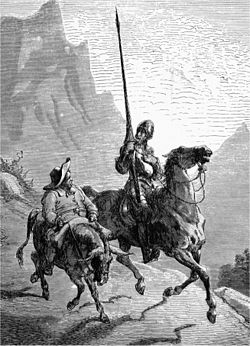Age: 31
Place of birth: Malvern, Worcestershire, UK
Residence: Frome, Somerset, UK
Education: Homeschooled
Relationship status: Single, never married
Occupation: Supermarket cashier
Personality: Anxious, nervous, distant, introverted
Backstory:
- Reginald was born on a farming estate in Malvern. His parents had a wealthy business going on from home; they would supply eggs, milk and dairy produce to local shops and food establishments in town. His father taught him the tricks of the trade as a young boy, hoping that he would inherit the family trade when he became older. His mother schooled him and other local students in a converted barn at home, earning money in tuition fees and grants from the government.
- Two years after Reginald's birth, a sister, Lily was born in August 1949. Reginald developed a close relationship with his younger sister, seeing himself as her protector.
- During early childhood, Reginald's parents would not allow him or his sister out to play with other children; the only contact they had with children their age was during their school sessions, but this contact was also limited. This forced the siblings to spend more time with each other. They would go and play on the farm together, look after the animals and go walking to the corner shop to buy sweets.
- At the age of 16, Reginald's relationship with his sister began to grow more romantic in nature. He would often stroke her hair, sleep with her in bed and kiss her in private. Due to their sheltered childhood, the siblings had no grasp of what was acceptable in a brother-sister relationship, and over time, their relationship began to develop into incest. Reginald engaged in sexual intercourse with his sister at least twice, unbeknownst to his parents.
- Lily eventually fell pregnant with Reginald's child, unable to tell her parents, she broke the news to Reginald after school one day. Reginald, ashamed of his conduct and scared of the consequences should this reach his parents, he descended into a fit of rage and pushed his sister over. She fell and hit her head on a stone, which cracked her skull and caused a brain hemorrhage, killing her. Reginald tried to stem the bleeding but due to inadequate knowledge of first aid, he could not, and he wept over his sister's body for hours before returning home, her blood still on his hands.
- At the sight of her son with blood on his hands, Reginald's mother questioned as to what he'd been doing. Reginald tried to cover his crime up by saying that he'd just helped his father slaughter a cow for a family meal. His mother dismissed this as usually, his father would slaughter the cows alone. Reginald eventually broke down and told his mother that he had killed his sister accidentally and the blood was indeed hers.
- Overcome with grief, the mother asked Reginald how his father was going to react when he found out what had happened. Driven by fear, Reginald packed a bag and left his home for the first time since birth, fleeing on a bus to Frome in Somerset.
- Reginald slept rough on the streets of Frome for around two months until moving to a homeless shelter. He continually had nightmares about his sisters murder and his unborn child.
- Reginald eventually took refuge with the Salvation Army, which offered him food and shelter until he could find a job for himself. He eventually undertook a job in a local Sainsbury's grocery shop as a cashier.
- After having earned enough money to fend for himself, Reginald left the Salvation Army and moved into a small bedsit in the centre of town. He still continued to have nightmares about his sister and his unborn child.
- When questioned about his past, Reginald becomes increasingly nervous and anxious. He remembers things that his sister used to enjoy in life (chocolate, flowers) and immediately associates them with her, which heightens his anxiety. He has often been rude to customers due to them asking for products he associates with his dead sister, but due to his past, the managerial staff do nothing but warn him.
=======================================================================
Research
"The Ballad of Lucy Wan"
Lucy or Lizzie Wan is a traditional northern folk song which details the incestuous relationship between a brother and a sister. The sister becomes pregnant with the brother's child, and out of rage and shame, the brother kills her and tries to cover up his deed. This directly influenced Reginald's overall story.
Fair Lucy she sits at her father's door,
A-weeping and making moan,
And by there came her brother dear:
'What ails thee, Lucy Wan?'
'I ail, and I ail, dear brother,' she said,
'I'll tell you the reason why;
There is a child between my two sides,
Between you, dear Billy, and I.'
And he has drawn his good broad sword,
That hung down by his knee,
And he has cutted off Lucy Wan's head.
And her fair body in three.
'Oh, I have cutted off my greyhound's head,
And I pray you pardon me.'
'Oh, this is not the blood of our greyhound,
But the blood of our Lucy.'
'Oh, what shall you do when your father
comes to know?
My son, pray tell unto me.'
'I shall dress myself in a new suit of blue
And sail to some far country.'
'Oh, what will you do with your houses
and your lands?
My son, pray tell unto me?'
'Oh, I shall leave them all to
my children so small,
By one, by two, by three.'
'Oh, when shall you turn to your
own wife again?
My son, pray tell unto me.'
'When the sun and the moon rise
over yonder hill,
And I hope that may never, never be.'
(Zierke, 2017)
Another inspiration for this character was a song influenced by this ballad written by English singer-songwriter Kate Bush, entitled "The Ballad of Lizzie Wan" in demo form and "The Kick Inside" in the final recorded version. Both versions are presented here.
Shakespeare's Lady Macbeth
Reginald's haunting dreams of his sister's murder that plague him are directly influenced by the character of Lady Macbeth in Shakespeare's Macbeth, specifically the scene where Lady Macbeth is seen sleepwalking through the chambers of her home, trying to wash the blood of King Duncan from her hands.
"Here's the smell of this blood still: all the perfumes of Arabia will not sweeten this little hand."
- Lady Macbeth, Macbeth (5.1)
========================================================================
References:
Bush, K. (1978) "The Kick Inside". In: The Kick Inside [CD]. EMI Records.
Shakespeare, W. (1606) Macbeth. London: Wordsworth.
Zierke, R. (2017) Lizie Wan / Lucy Wan / Fair Lizzie (Roud 234: Child 51). Available at: https://mainlynorfolk.info/martin.carthy/songs/lucywan.html. (Accessed: 29 April 2017)























